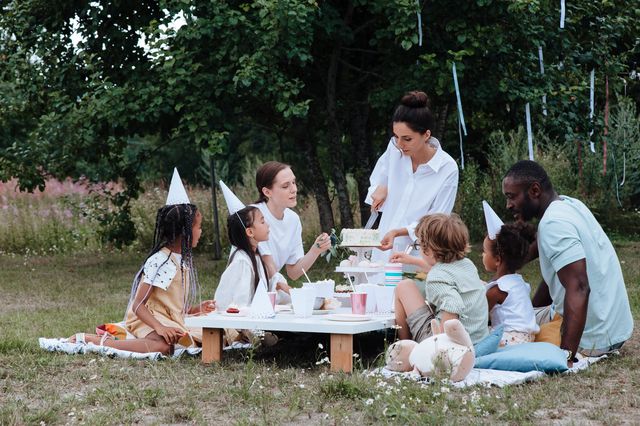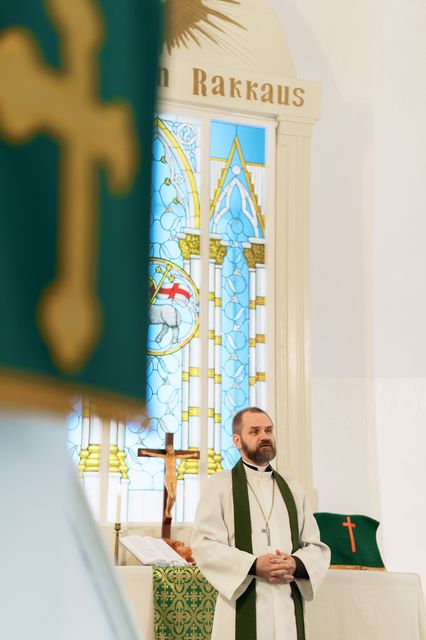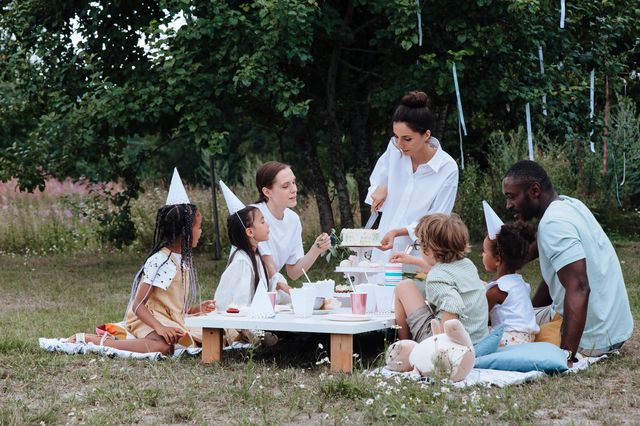
When I was growing up, we were faithful members of the Southern Baptist Church. Every Sunday morning and evening, we were there for worship. Hymns. Scripture reading. Announcements. Choir Anthem (It was called “Special Music;” I’m not sure why). All of those set the stage for the sermon. I can picture my family sitting together in a pew. I can picture the faces of these men standing in the pulpit (yes, they were all men). They all had different ways of speaking and different styles of delivery. But they had one thing in common. To this day, I can’t remember any of them smiling while they delivered the sermon.
The looks on their faces weren’t stern or severe. For the most part, the tone of their voices was not harsh. There just weren’t many smiles. Even at the beginning when they would often tell a humorous story…their faces might soften a bit, but no smiles. It was clear that humor was designed to break the ice for all the serious words that followed.
Not just life and death, but eternal life and death. The caricatures of preachers talking about hell and damnation in roaring voices…I didn’t experience much of that. But when every sermon, no matter what the topic, ended with an invitation to ask Jesus to be your Lord and Savior or to rededicate your life to Christ or to commit your life to full time Christian service…you knew something serious was at stake.
Maybe that is one of the reasons for the lack of smiles from the pulpit. In their minds, they were talking about life and death matters.

What was true for these ministers was also true for the Jesus they proclaimed. The Jesus I encountered in my childhood was a serious person. In my children’s Bible and in my Sunday school classes, I saw lots of pictures of Jesus. Lots of them. But it wasn’t until I was a young adult that I saw a picture of Jesus smiling.
Now, lest I sound too harsh, as a minister, I have stood in the pulpit like these men of my childhood. I attended homiletics classes in seminary (at my Baptist seminary, they were “preaching” classes). We learned how to write and deliver sermons. Not once did any of my professors or my classmates say to me, “Gary, you need to smile more while you are preaching.” Even after I realized that smiling should be a part of how I delivered a sermon, I had to be intentional, to remind myself to do it.
Maybe the problem is that all these men, including myself, have made Jesus into our own image. We are talking about sin and salvation, getting our lives in order, dealing with the moral problems of the world, so it makes sense that there wouldn’t be lot of smiles. And Jesus, he was not only talking about these things, but as the Savior of the world, through his death, he was actualizing them in some way. So, no there wouldn’t be a lot of smiles.
Several years ago, I wrote a sermon entitled “Jesus, the Life of the Party.”

It was an effort to give expression to this Jesus who smiled, who laughed, who reveled, who played. It was an effort to give expression to this smiling and laughing Jesus. It is a side of Jesus that is there in the gospels but often missed or overlooked. The sermon was based on Matthew 11: 18-19. Jesus confronts those who are criticizing his ministry with these words: For John came neither eating or drinking, and they say, “He has a demon;” the Son of Man came eating and drinking, and they say, “Look, a glutton and a drunkard, a friend of tax collectors and sinners.” Yet wisdom is vindicated by her deeds.
If you want to discredit someone, you identify behaviors that are offensive and hold them up for ridicule. Notice the behaviors that Jesus’ opponents identify as offensive; notice the names they call him: He goes about eating and drinking in ways that could suggest he is a glutton and a drunkard. It seems that Jesus knew how to enjoy life fully, so fully that he was accused of overdoing it a bit.
This joy and passion for life can be found in his words.
It is hard for me to picture some of Jesus’ sayings being spoken with a serious tone. “Blessed are the poor in spirit, for theirs is the kingdom of God…Blessed are the merciful, for they will receive mercy…Blessed are the pure in heart, for they will see God.” The Beatitudes are not stern declarations of how we must be; they are these delightful declarations of what is already true in the world, if we are open to it. I picture Jesus saying these words with passion, with delight, with a smile.

When Jesus talks about the end of the age, that time when God’s desires for the world are fully realized, he does not use images of a cataclysmic battle between good and evil. He uses the image of a wedding banquet. To be fair, this is not a banquet the way we imagine it, with bland food and boring speakers. This is a celebration. This is revelry. This is a party.
This joy and passion for life can be found in Jesus’ actions as well.
One of my spiritual mentors, Ted, was a man who had his own zest and passion for living. In one of our conversations, he talked about Jesus’ first miracle in the gospel of John. When we think of Jesus’ miracles, we think of all the people he healed. But with his first miracle, Jesus did not save a sightless man from a life of blindness or a leper from a life of disease and isolation. He saved a party. The wine had run out, and he turned water into wine. Gallons and gallons of water into wine. Something so frivolous and so unnecessary, and yet saving a party was a declaration of God’s presence in the world in an unheard of and unimagined way.
So this deep enjoyment, even pleasure, of life was not just an expression of Jesus’ personality. And it was not just fun for the sake of fun. It was an expression of God’s yearning and desire for the world. A world where all were welcome…to the celebration. To the party.
My mentor, Ted, offered me another image. He pointed out that the first accusation against Christians was, “They’re drunk.” The Spirit descended, and seeing something that had never been present in the world, the conclusion was “They’re drunk.” And then, with a twinkle in his eye, he added, “And how long has it been since the world could accuse us of being drunk.”
So Jesus welcomes us to the party. But the party cannot begin or be enjoyed fully until all are invited. That is the charge Jesus gives to us.
